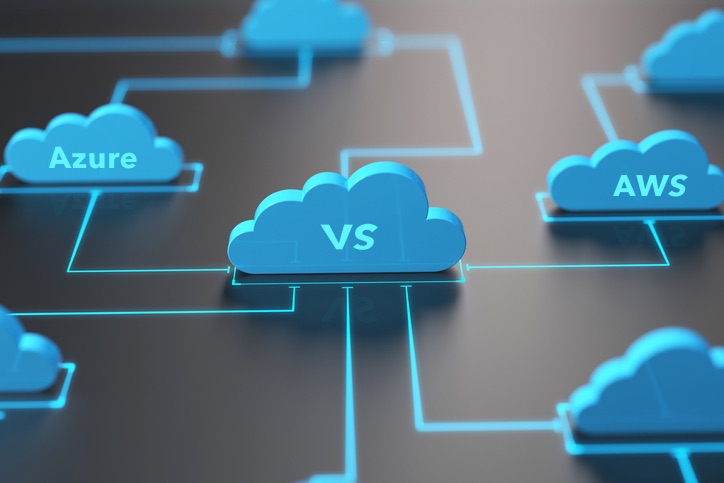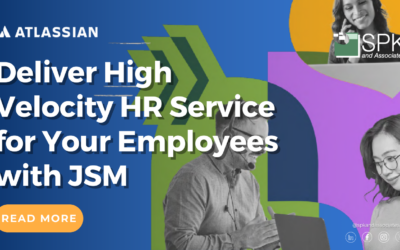Hybrid cloud brings you the best of on-premises and cloud-based infrastructure. But how does it stack up in terms of security and compliance? Two of the biggest vendors in the cloud space, Amazon Web Services and Microsoft Azure, have kept pace with one another in terms of compliance with HIPAA and FIPS. Listen to SPK’s own, Chris McHale, CEO and Co-Founder, and Mike Solinap, Cloud Practice Manager’s podcast below comparing security and compliance capabilities of Azure and AWS.
[audio src="https://www.buzzsprout.com/175152/700815-how-secure-are-aws-and-azure-cloud-solutions.mp3" /]
Next Steps:
- Read how AWS & Azure can help turbocharge your manufacturing organization.
- Suggest a follow-up topic for Chris and Mike to discuss in their next podcast.
- Subscribe to our blog to stay informed on product development and engineering efficiency topics.
- Schedule a free consultation with a member of the SPK and Associates today.
- Read the podcast transcript below.
Chris: Hi, my name’s Chris McHale and I’m CEO and Co-founder of SPK and Associates, and we’re excited to have put together a series of podcasts which concern the overall topic of cloud security and compliance which is a hot topic today and hopefully will be of interest to our audience. Before we get started on the specific topic for today I’d like to introduce Mike Solinap. So, Mike is our Cloud Practice Manager at SPK and is quite an expert these days in cloud, public cloud, hybrid cloud, and also the security and compliance questions that go along with it. So, Mike, can you just take a minute or two to introduce yourself and tell our audience a little bit about yourself?
Mike: Thanks, Chris, for the introduction. Hi, folks, this is Mike Solinap, District Manager of our cloud and infrastructure practice here at SPK and Associates. I’ve been with the firm for roughly over 10 years now and my team is in charge of managing the cloud infrastructure for many of our med device and automotive customers. We have experts in DevOps automation, DecSecOps automation, as well as, you know, auto-scaling and the overall security of our environments.
Chris: Great. Thanks, Mike. And we’ll be seeing a lot more about what you’ve been involved in as we kinda go through some these questions which will be hopefully of great help to our audience. Okay, so today we’re gonna be talking about the topic of how Azure and AWS compare in security and compliance. But I think what we’re going to do is just start or preface that a little bit with how does Azure and AWS compare from the perspective of the various strengths that they have and services that they provide. And again, this is not to say that there aren’t other cloud service providers but these are two we’re just going to focus on today.
So, first of all, Mike, the whole topic of cloud and the use of public cloud, in particular, the increasing popularity of hybrid cloud which is really effectively the use of on-prem infrastructure, private cloud infrastructure, and also public cloud infrastructure or some combination of those is of particular importance and interest to people today, and I would say it’s mostly because the idea of just exclusively using public cloud this isn’t very practical two people. So, with the idea of hybrid cloud in the background here but more importantly, just the comparison of both Azure and AWS from the perspective of their services, what are some of the main criteria that organizations should look at or what should they consider when they’re trying to evaluate between those two cloud service providers?
Mike: So, yeah, Chris, you mentioned that just having a public faith in cloud infrastructure usually isn’t too practical, and realistically, the reason for that is because, you know, because firms have established infrastructure that they built on-prem. They’ve got applications that are already deployed on-prem and they’ve got the processes that surround that. So, you know, that’s where hybrid cloud makes sense because we just kind of extend what they’ve got already into the cloud and kind of get their feet wet and they can adopt it as their needs grow.
So, on a topic of compliance, you know, both AWS and Azure are both leaders in their space, so what we’ve been seeing in recent times is a lot of feature parody. So, in terms of certifications and compliance programs such as HIPAA and FIPS we’re seeing AWS and Azure are somewhat keeping pace with each other and they’ve got a lot of offerings from many different certifications and compliance programs. So, I think from that perspective alone there’s not much of a differentiator but, you know, one differentiator that we have seen particularly with one of our customers is the topic of data residency, data residency becoming an increasingly important topic especially, you know, countries abroad such as Europe and China as well.
Chris: So, Mike, can you define data residency for some of those that may be listening that aren’t familiar with the phrase?
Mike: So, the question is, you know, when my data goes into the cloud or when I run my instances in the cloud or I upload my data into the cloud, where does it get stored physically on servers? And the question is, sometimes customers don’t really know they leverage these cloud servers and it kind of just goes off into the cloud and it’s not really clear. So, being able to establish where your data resides is important for regulated industries and depending on your business requirements. Azure and AWS have locations in different parts of the world, and I think depending on what your data residency requirements are you may end up choosing one provider over the other.
Chris: Oh, I see. So, if you’re in Europe for example and there’s a requirement that your data be resident in a particular country area you may pick AWS or you may pick Azure depending on where their data centers actually are physically located?
Mike: That’s right.
Chris: Okay. That’s a good point. In terms of security, that is related to security, of course, but are there any differentiators between Azure and AWS from a security perspective, or is that kind of on par as well?
Mike: Sure. I would say that you know, as I mentioned, both of them are leaders in their space both Azure and AWS so for things like identity management, key management, auditing of services and users, logging of activities, both of these providers have features that will allow you to leverage that capability, but I would say that Azure does have a deeper active directory inner creation available to it. So, if that’s a type of environment that you’re, you know, coming from and you’ve got some established applications built around that, then Azure might be a better pick for you overall.
Chris: And we’ve even had some situations I think where we’ll move into a multi-cloud solution for our customers. For example, if you’ve got specific workloads or applications that have that deeper AD integration and you might need to host those on Azure but there may be other things that live more compatibly in AWS. Is that the kind of thing that can be done again where you manage them both seamlessly?
Mike: Yeah, that is a great point, you know, there’s not a one-size-fits-all. And you may use one cloud provider to meet one set of requirements and then hop over to the other to leverage what it has to offer. So, that’s a great point, Chris.
Chris: So, on the AWS side, a lot of people have thought, “Well, AWS is great for engineering.” Right? It kinda grew up out of engineering and engineers tend to gravitate towards it. Why is that and is that still the case? Is it still a better pick because of specific services that are being provided?
Mike: Yeah, I think at least historically, AWS was built around and friendly to open source technology such as open source databases being able to write, and things like Python and other more commonly used programming languages on open source platforms. Whereas Azure is typically tied into the Microsoft ecosystem including where you might store codes such as Visual Basic or Team Foundation Center. So, that’s typically why, you know, developers have kinda gravitated towards one or the other.
Chris: As a final question, is there a go-to cloud provider depending on the industry or sector of manufacturing? For example, does medical device kind of gravitate towards one or the other? Same question for automotive. Or is it really not a valid differentiation question? A lot of that may surround compliance requirements I suppose, but what’s your take on that?
Mike: Again, I would say it would probably depend on the device being developed or the application. For instance, if you have an embedded device that runs Windows 10 embedded then you may want to stick with Azure, but if you’ve got something completely custom with a Linux operating system and you’re using tools that are a lot open source-driven then you may want to stick with the AWS platform. Otherwise, from a compliance perspective, you know, both platforms for many different sectors have compliance offerings as well.
Chris: So, Mike, thanks again for taking some of your valuable time today to talk with us about cloud and hybrid cloud particularly related to the topics of security and compliance. So, we would love to hear from anyone listening with comments or questions that you might have. We’re really happy to help in any way that we can. If you’re interested in more of SPK’s podcasts or papers on this or related topics, head on over to our resources section our website which is spkaa.com and there you’ll find papers and blogs helpful to product development professionals.
We recently published a whitepaper titled “How Cloud Solutions Can Help Your Manufacturing Enterprise Maintain Its Competitive Edge” as well as a more recent paper focused on Azure cloud solutions for manufacturing. And hopefully, both of these will be helpful to you. So, please join us again for our next podcast in this series of security and compliance in the cloud. And in the meantime, have a wonderful, safe, and productive week. Thanks.







